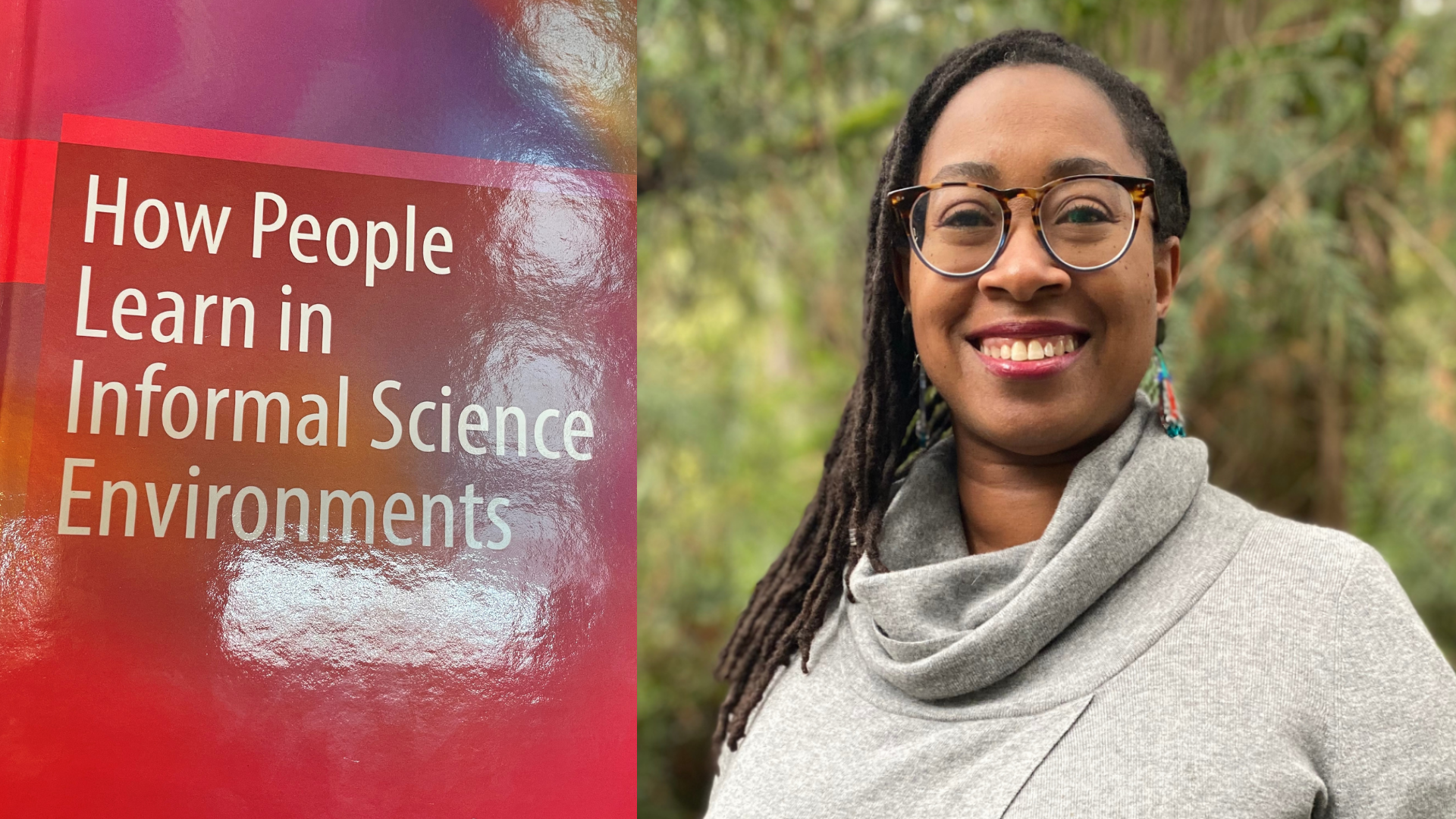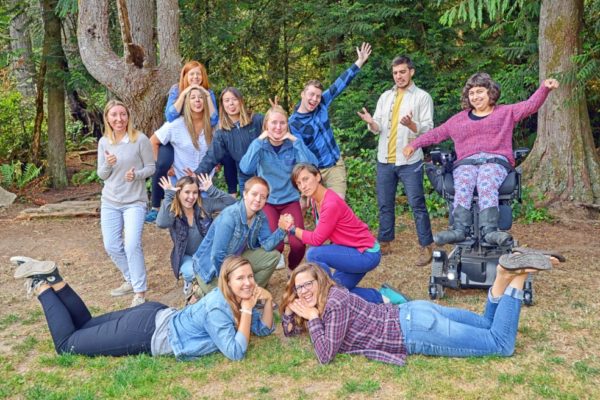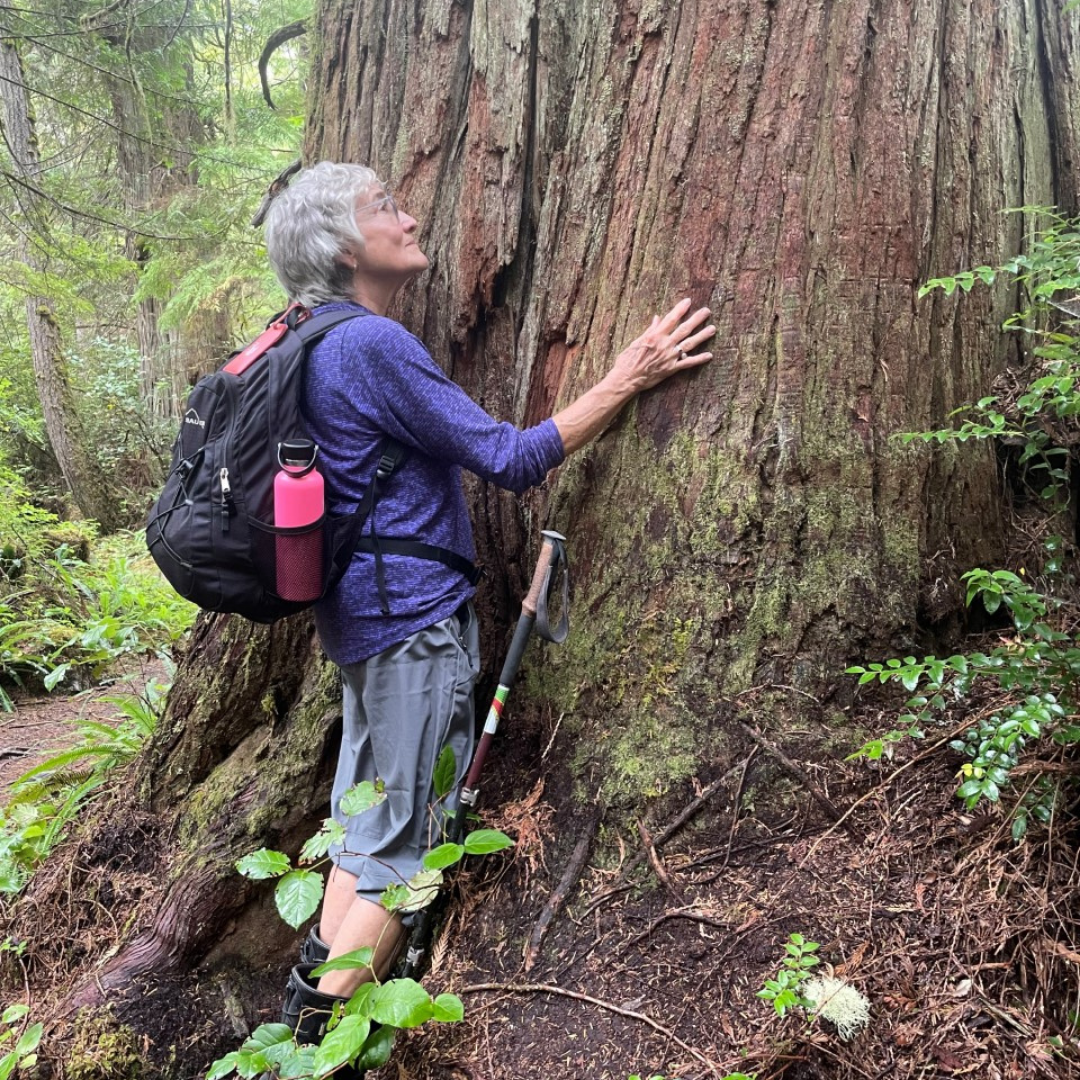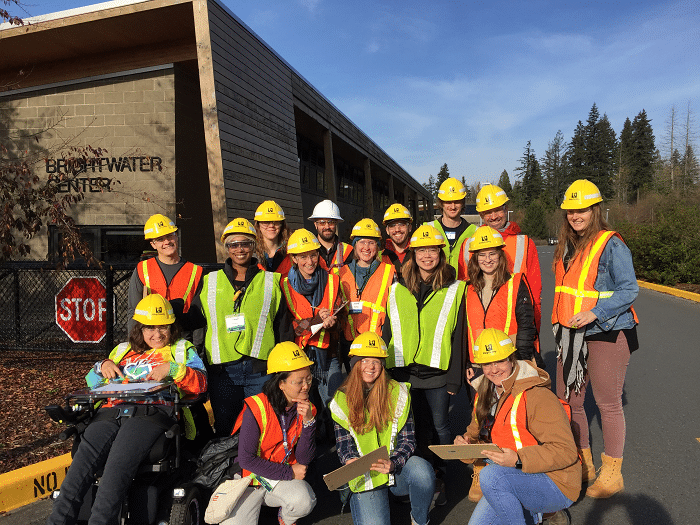On the South end of Bainbridge Island, just northeast of Blakely Harbor is a “School…
“It’s wonderful to see a chapter about our work with graduate students in a book about learning theory. I’m delighted to have had the focused time to develop this work. Part of the work is also making sure that we’re putting writings about what we’re learning into the world. We want to be able to demonstrate how we’re connecting our work with other theories of learning.”
– Dr. Déana Scipio, Director of Graduate and Higher Education Programming
Recently, IslandWood’s Director of Higher Education and Graduate Programs, Dr. Déana Scipio, was published in a book that brings together her learning theory along with the perspective of 21 international authors and their diverse learning theories.
The book, “How People Learn in Informal Science Environments,” compiled by editor Patricia G. Patrick, is written to engage a broad audience of researchers in universities and museums, while appealing to the growing number of researchers and educators who recognize the importance of informal learning to the development of environmental and scientific literacy.
We asked Dr. Dé about her contribution to the book and how sharing her learnings can hopefully benefit other educators in the field and their curriculum design, as well as help to grow and evolve IslandWood’s EEC Graduate Program.
What led to your theory getting published in this book?
When I read the call for proposals, it seemed like a good match for a chapter about my work in the EEC (Education for Environment and Community) Grad Program at IslandWood. I was invited to submit an abstract for a chapter to the book by the editor, Patricia G. Patrick, in 2019. Once the book was under way, I was invited to write the chapter, “Leveraging Intersectionality and Positionality in Praxis-Oriented Teacher Learning” and then we went back and forth for a few years with drafts, feedback, edits, and the editor and publisher going through the final publication process.
What theory is featured in the chapter you wrote?
My chapter is about the ways that we use intersectionality (a theory developed by Kimberlee Crenshaw) and positionality to help grads in the EEC Program think about what it means to do this work when they write their philosophy of education for a class I teach in the fall.
We’re using these theories to ask grads to think about who they are and how they are positioned with respect to joy, community, relationship, power privilege and oppression so that they can understand the impacts of who they are on their design and decisions about what and how they teach and work with young people.
What were your thoughts when you got a copy of the book?
It’s wonderful to see a chapter about our work with graduate students in a book about learning theory. I’m delighted to have had the focused time to develop this work — to make sure that we’re putting writings about what we’re learning into the world. We want to be able to demonstrate how we’re connecting our work with other theories of learning.
————————————————————————————————-
Want to learn more on the topics referenced in this post?
- Read more about how environmental educators can practice intersectional environmentalism in this piece, co-authored by Dr. Scipio
- Listen to Dr. Scipio featured on the Humans of Learning Sciences podcast, talking about how intersectionality, positionality, and humility is pivotal in the graduate student experience in support of environmental justice
If you haven’t already, subscribe to our newsletter to stay in the know about blog posts, news, and events!










